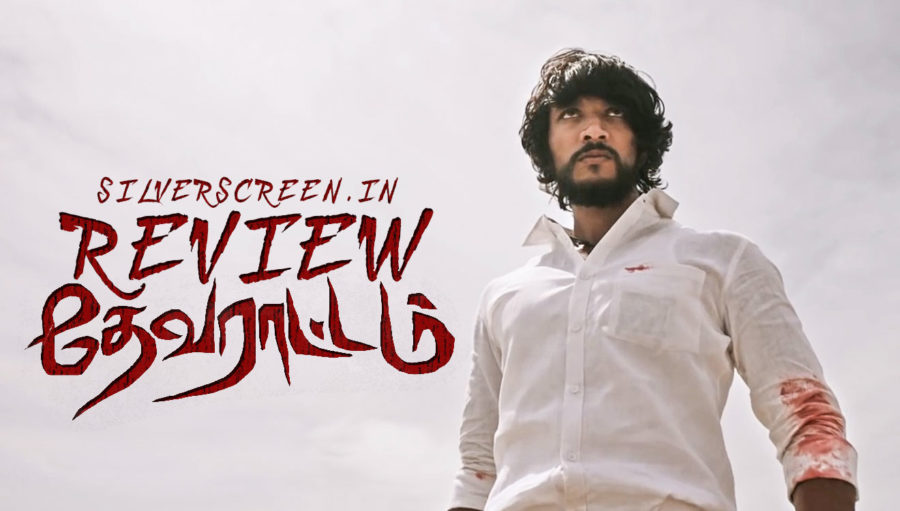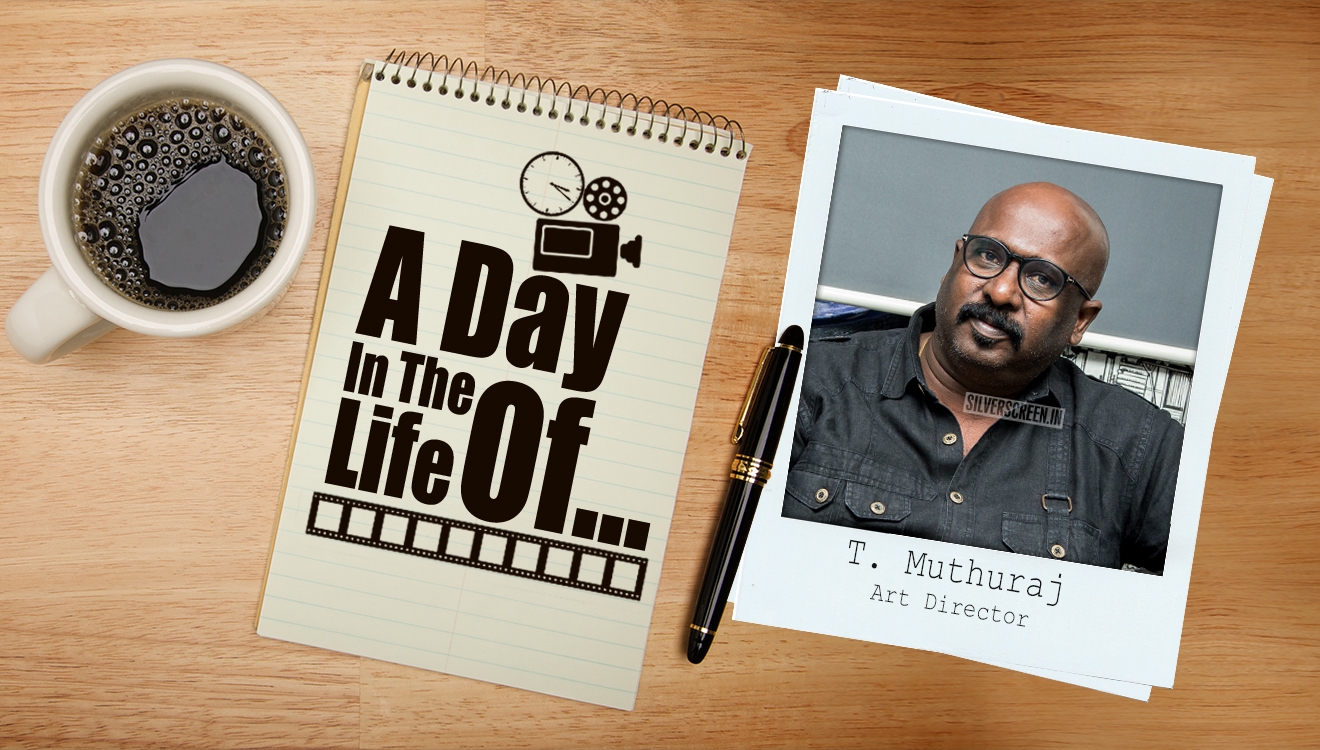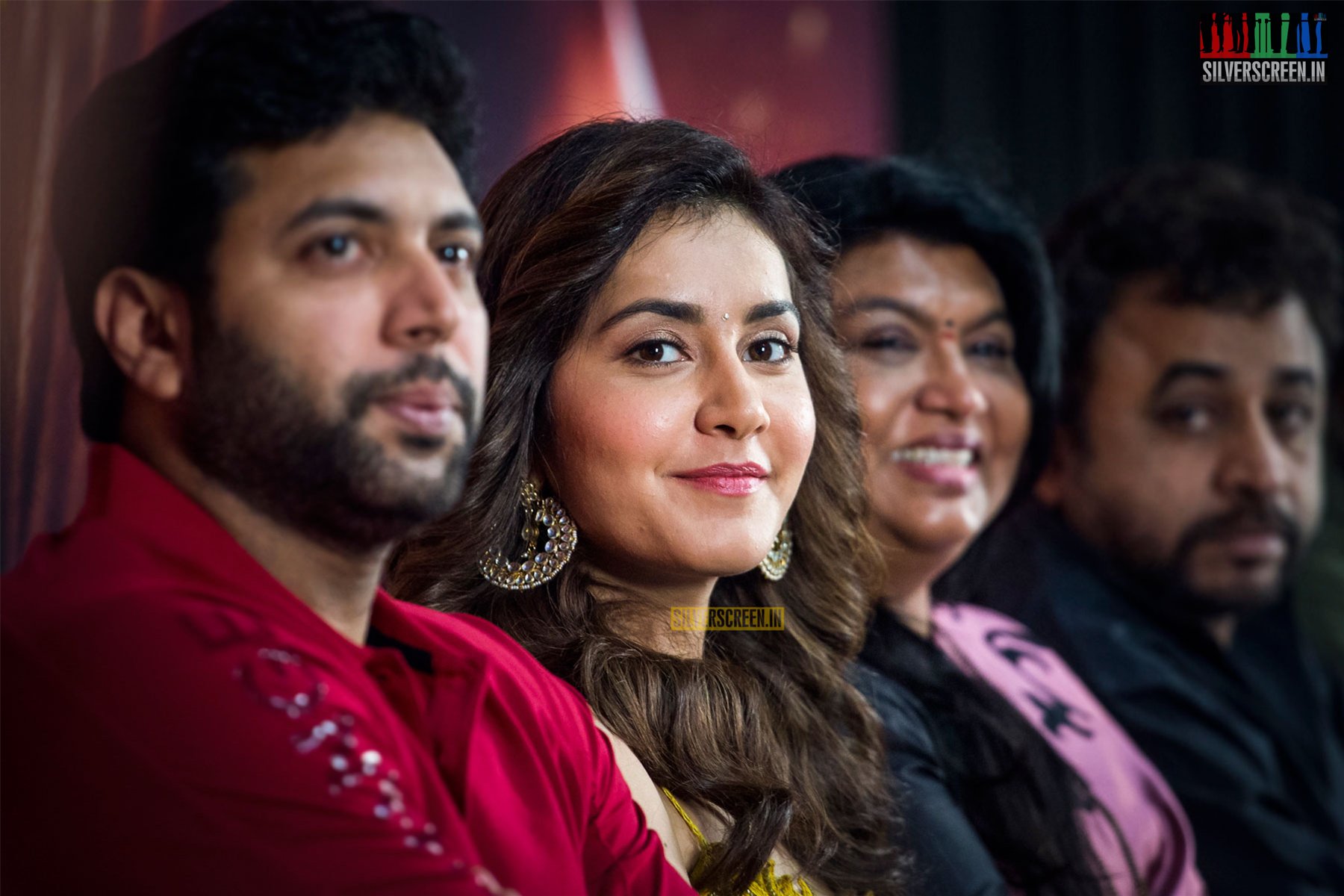Director: Muthaiah
Cast: Gautham Karthik, Manjima Mohan, Fefsi Vijayan
Composer: Nivas Prasanna
May contain spoilers
A Devarattam Review will also need an audience review. On a Wednesday morning (admittedly a holiday on account of International Labour Day), this posh screen was packed to the brim with people enthusiastically cheering every bit of violence and gore, caste pride assertion, and cheap jokes. Those occupying my row of seats were anticipating the next killing with the same spirit that they would a Chennai Super Kings victory in the last over of a match.
Clearly then, this is what allows Gautham Karthik to make his second outing in a film that valourises Thevar pride and related violence. Muthuramalingam was absurd in the way it built up the core conflict of the film, but it still pushed the idea of Thevar supremacy through every scene and song. And now, Devarattam.
Ahead of its release, Devarattam earned criticism for its poster that threatened violence – the poster carried a line of dialogue from the film: “One may forgive the person who tries to possess my land, but never the person who tries to possess my women” – a classic case of equating women and land as objects, possessions, and the need for the men to be manly and “protect” them from the “unworthy”.
Honour killings and violence against women are almost always because a “lowly” man has dared to fall in love with an upper-caste woman, and the woman has dared to reciprocate this. We saw that with Sankar-Kausalya, Nandesh-Swathi, Pranay-Amrutha and scores of other cases. And, Devarattam’s poster was echoing that. It was a signal to those who felt that “honour” – which always operates through a woman’s body and her chastity and sexuality – was lost because some man outside the circle of clan, tribe, and caste dared lay a hand on her.
However the director responded to the criticism and said that the line quoted in the poster was from a different context and that the film would not be about caste pride. But, no. The film is all about caste pride.
*****
Devarattam is written and directed by Muthiah, and produced by Studio Green’s K.E Gnanavel Raja. The film stars Gautham Karthik, Manjima Mohan, Fefsi Vijayan, Soori, Vinodini Vaidyanathan and others. It was shot by Sakthi Saravanan and edited by Praveen KL, and features music composed by Nivas Prasanna.
*****
The leading rowdy, villain par excellence of Madurai, is Kodumbavi Ganesan (Fefsi Vijayan). A man who will kill his friends for daring to speak up to him. But Ganesan wants a child badly, all his previous children died at childbirth. So, he walks the streets of this ancient city begging for alms in a ritual to ensure longevity of his newborn son. And helping him in this ritual is Kalyani Devar (Vela Ramamoorthy) a honest and upright man with a pregnant wife, and an equally pregnant first-born daughter.
Just a short while later, Ganesan and Kalyani Devar spar over property and Ganesan kills the latter. Fast forward 20 years, and Vetri (Gautham Karthik) is a young man who’s trained as a lawyer and is about to join the chambers of a leading civil lawyer in Madurai. But, before that, let’s break a few bones, slap a few men, destroy public property and inflict bodily harm to a coconut and a human skull because a girl’s modesty was outraged. In the police station, the inspector questions Vetri, but because he’s a trained lawyer, he is able to provide clauses and sections and chapters of law and the related punishment for each of the crimes the men have done, and for his crime of taking the law into his hand. And he follows this up at home to say “They may take our lands, but never our women.” Fantastic.
Right after that Vetri meets Madhu (Manjima Mohan), a young law student/junior lawyer who is protesting the local TASMAC wine shop. Vetri arrives to buy alcohol to offer to the gods but Madhu assumes he is an early morning alcoholic in search of his fix. Vetri proves her wrong, and cue: Dance. Song. Madurai. Thevar.
Vetri, the next day, arrives at the court premises only to witness a brutal killing. Ganesan stabs a man who dared talk to his son. Vetri wants to intervene but his family stops him. Meanwhile, a group of no good men led by Munna (Raghu Adithya) harasses the women in a mall. A spirited young college student resists the men and beats them up. And so, revenge: the young girl is abducted, raped, and made a drug addict.
Madhu goes to the police, who register a case. But Deivam (Chandru Sujan), Ganesan’s son, intervenes and threatens the police. Because Munna and he are kindred souls – rich powerful sons of rich powerful men. Madhu then goes to Vetri who knows exactly what section of law to use for this: his muscles.
Vetri beats up Munna and cautions Deivam. Deivam, in turn, runs over the young woman’s parents and kills them, thus rendering the case ineffective. Vetri chases down a speeding SUV, overtakes it, fights dozen henchmen and then brutally kills Munna and Deivam, and we go into an interval. Thus far, in the one hour and odd of the film’s runtime, we’ve seen Muthuramalinga Thevar’s statue about a dozen times, each cheered on very, very vocally by the audience in the hall. There are also indirect and direct references to the valour of Thevars and why they must take the lead in society.
When the film resumes, Ganesan has had Vetri abducted by the police and brought to his lair. Here, Ganesan’s men want to kill Vetri and one person even attempts to stab him but Ganesan intervenes. This is his prey and only he will kill. Ganesan says he will not press charges and instructs his cops to drop all cases against Vetri, gives him 14 days – till the end of the funeral rites of his son – after which they will meet again and Vetri will die. However, the police charge Vetri with murder on the basis of a complaint by Munna’s father and an attempt is made on Vetri’s life in jail.
Therefore, Ganesan kills Munna’s father. Because, why not?
Ganesan also bails Vetri out, who is then convinced by his family to run away to Kodaikanal to escape the wrath of this evil and powerful man. Vetri, although brimming with desire for vengeance, does indeed go to Kodaikanal because we need a scene of romance for Madhu, who has had about 2.4 seconds of screen time in the last hour, and one must justify why she was cast.
An enraged Ganesan then has Vetri’s eldest sister and her husband (Vinodini and Bose Venkat) murdered, and so we roll on to the final conflict
*****
The classic set-up, conflict, resolution and final climactic fight between good and evil, hero and villain, is the mainstay of Tamil cinema. Everything in the film is directed to this. It’s a classic, and well-tested formula, borrowed and improved upon by generations of Tamil cinema directors. After all, if it’s good for Marlon Brando in On The Waterfront, and Kamal Haasan in Satya, and Vijay in Sivakasi, it must be good for Gautham Karthik in Devarattam. Except it needs a bit of work. It needs us, the audience, to invest in the hero’s success and failure. It needs the righteous hero to succeed after failure. It needs a villain who can inflict some damage. It needs good writing.
Devarattam doesn’t have that. Yes, Ganesan is blown up. Yes Ganesan seems invincible but at no point in time has Vetri ever failed. He beats and maims goons throughout the film, pausing only to deliver punch dialogues. Never has he not succeeded in his fight, and even the one time he lost — his sister and brother-in-law’s death — it is shown (and explained and told to us via dialogues) to be because of others.
And, more importantly, the final climactic fight needs to be that: the final climactic fight at the end of which the hero – blood stained perhaps but muscles flexed and adrenaline surging and drum beats rending the air – walks the town in his righteous victory. It needs to be the last thing we see before credits role and a ‘Subam’ flashes on screen and we can all go home feeling like we got our two hours and change worth of entertainment.
But here in Devarattam, a scene of mourning precedes and follows the climactic fight. We see Vetri in sorrow and tears, not as a conquering hero who slayed the dragon, but as a pitiful figure. It felt like we were deprived of about 20 minutes of film run time. Is this bad writing or bad editing, I don’t know.
The other thing is: Ganesan has killed Vetri’s father. But we never see Vetri being told this. Surely a film like this requires a hero to grow up holding a grudge, or grow up and then, learning of the death of his father, acquire a rightful grudge that will lead to the final conflict. But no, Vetri’s fight in Devarattam is the result of a man who wants to avenge the violence meted against a young woman – a woman he is not even related to or is romantically interested in. Is this a change in Tamil cinema formula? Is this an improvement, an evolution?
Recommended
Yes, the woman in question stood up for his sister but that bit is so underrated and is hardly repeated through the rest of the film. The main conflict, therefore, is that of a man protecting the women of his clan. But in the final fight, Vetri flashes back to his father’s death. Where did he suddenly acquire this memory from?
Finally, a note to the director: when staging flashback scenes, especially those set 20 years in the past, please ensure there are no posters, calendars and the like that date it to 2017.
*****
The Devarattam review is a Silverscreen original article. It was not paid for or commissioned by anyone associated with the movie. Silverscreen.in and its writers do not have any commercial relationship with movies that are reviewed on the site.



